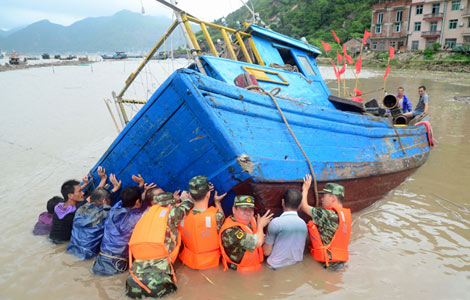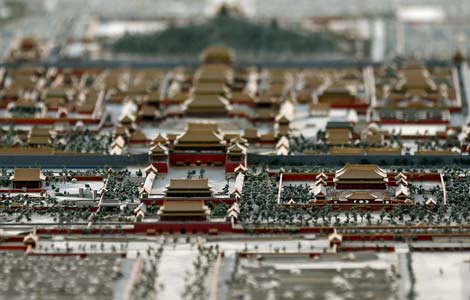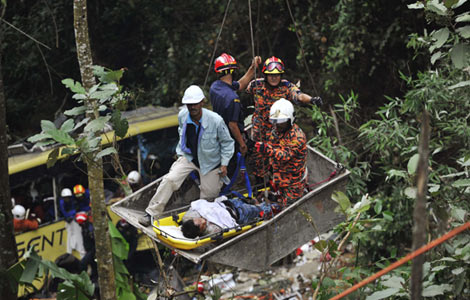Public opposition defuses nuclear plans
Updated: 2013-08-23 08:09
By Qiu Quanlin (China Daily)
|
||||||||
A key project
The 37 billion yuan ($6 billion) cost of the project, South China's first planned industrial park for the production of nuclear fuel, was to have been borne by the local government and the companies, according to sources within the local government.
The facility would have supplied power plants in Guangdong and neighboring Fujian province, and would have had an annual production capacity of 1,000 metric tons of uranium by 2020.
The Guangdong Provincial Reform and Development Commission approved construction of the project in December, naming it as a key project during the next five years. By March, the local government had signed a construction contract with CGNP and CNNC.
Once the contract had been signed, the government and the companies arranged for experts to conduct preliminary work, such as selecting a suitable site and undertaking an initial assessment of the possible environmental impact, according to the official.
Crucially, however, the locals hadn't been told about the plan and the first they heard of it was when the notice announcing the risk to social stability assessment was posted.
"Now you see the result. It wasn't something we'd bargained for. The project would have boosted the local economy. We have learned lessons from the project; we didn't conduct an efficient and practical promotion of nuclear fuel before canvassing public opinion. That's why a large number of residents demonstrated their opposition," the official said.
"We should also have better informed residents outside Heshan about the project. People from cities in the delta region, in particular, displayed great concern. They were worried about potential nuclear leaks when the project was put into operation," he added.
However, Chen Anxiu, of Jiangmen Nuocheng Consultant Co, the company responsible for conducting the assessment, said the public manner in which it was conducted was part of a series of measures intended to keep the residents well informed.
"A final risk assessment has yet to be undertaken. We will still conduct the assessment, even though the project has been canceled," said Chen, who added that the assessment was in line with regulations established by the central government.
In days gone by, the process of commencing work on large projects was relatively quick and simple, but rules introduced by the National Development and Reform Commission in the second half of 2012 have imposed much more stringent requirements, according to Chen.
For example, large local projects must be halted temporarily if they meet with "medium-level" opposition, according to the regulations.
Most Viewed
Editor's Picks

|

|

|

|

|

|
Today's Top News
McCain comments about Diaoyu draw fire
Chinese scientists asked to improve toilet
Bo Xilai denies bribery charges
Experts say police need guns on patrol
Nasdaq resumes stock trading
German mitten crabs not 'qualified for import'
Chinese netizens debate upping retirement age
Egypt's Mubarak leaves prison
US Weekly

|

|
















